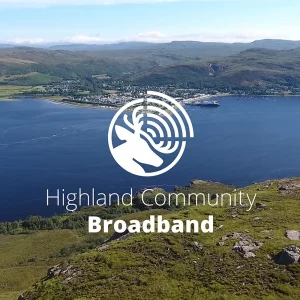Sponsored Links
Near Final ACTA Copyright Piracy Enforcement Treaty Spells Trouble for ISPs
Posted: 07th Oct, 2010 By: MarkJ
 An official version of the near-final Anti-Counterfeiting Trade Agreement (ACTA), which seeks to establish international standards on intellectual property rights (copyright) enforcement (i.e. such as on the internet or through ISPs), has finally been published and could spell trouble for UK and European (EU) broadband ISPs.
An official version of the near-final Anti-Counterfeiting Trade Agreement (ACTA), which seeks to establish international standards on intellectual property rights (copyright) enforcement (i.e. such as on the internet or through ISPs), has finally been published and could spell trouble for UK and European (EU) broadband ISPs.The text, which remains incredibly tedious to read and seems more designed for the eyes of a computerised lawyer than an actual human, appears to have added some worrying new wording that risks turning Internet Service Providers (ISP) into an unofficial copyright police force. A couple of samples have been posted below.
Section 5: Enforcement of Intellectual Property Rights in the Digital EnvironmentWhile no.4 is already an established fact of the UK Digital Economy Act 2010 (DEA) anyway, the following line from no.2 is perhaps of more concern and appears to be a recent addition: "unlawful use of means of widespread distribution".
ARTICLE 2.18: ENFORCEMENT IN THE DIGITAL ENVIRONMENT
...
2. Each Party’s enforcement procedures shall apply to infringement of at least trademark and copyright or related rights over digital networks, including the unlawful use of means of widespread distribution for infringing purposes. These procedures shall be implemented in a manner that avoids the creation of barriers to legitimate activity, including electronic commerce, and, consistent with each Party’s law, preserves fundamental principles such as freedom of expression, fair process, and privacy.
...
4. Each Party may provide, in accordance with its laws and regulations, its competent authorities with the authority to order an online service provider [ISP] to disclose expeditiously to a right holder information sufficient to identify a subscriber whose account was allegedly used for infringement, where that right holder has filed a legally sufficient claim of infringement of at least trademark and copyrights or related rights and where such information is being sought for the purpose of protecting or enforcing at least the right holder’s trademark and copyright or related rights.
That one sentence is incredibly broad and appears to be saying that ISPs would be expected to use "enforcement procedures" against any means of "widespread distribution", which could be interpreted as restrictions against P2P services, websites or potentially almost any internet service.
However the text does state that such procedures should be "implemented in a manner that avoids the creation of barriers to legitimate activity," which adds a rather tedious contradiction given that even P2P is legitimate until somebody abuses it.
Jérémie Zimmermann, spokesperson of the citizen advocacy group La Quadrature du Net, said:
"The release of this near-final version of ACTA does not satisfy the transparency requirement of democracy, since citizens and their elected representatives are put before a 'fait accompli'.
If this agreement were to be implemented, the rights and freedoms of citizens across the world as well as democratic processes would be severely undermined. Ratification of ACTA must be opposed by all means."
"The release of this near-final version of ACTA does not satisfy the transparency requirement of democracy, since citizens and their elected representatives are put before a 'fait accompli'.
If this agreement were to be implemented, the rights and freedoms of citizens across the world as well as democratic processes would be severely undermined. Ratification of ACTA must be opposed by all means."
It was recently confirmed that no democratic institution in the UK had seen the official ACTA drafts and parliament has not even been involved in the negotiating process. The same can be said for the European Parliament and MEP's.
Participants in the negotiations include Australia, Canada, the European Union (EU) - represented by the European Commission (EC), the EU Presidency and EU Member States + Japan, Korea, Mexico, Morocco, New Zealand, Singapore, Switzerland and of course the United States of America (USA).
Near-Final ACTA Treaty Download (PDF)
http://www.ustr.gov/webfm_send/2338
Search ISP News
Search ISP Listings
Search ISP Reviews
Latest UK ISP News








Cheap BIG ISPs for 100Mbps+
150,000+ Customers | View More ISPs
Cheapest ISPs for 100Mbps+
Modest Availability | View More ISPs
Latest UK ISP News
Helpful ISP Guides and Tips
Sponsored Links
The Top 15 Category Tags
- FTTP (6856)
- BT (3902)
- Politics (3098)
- Business (2795)
- Openreach (2681)
- Building Digital UK (2525)
- Mobile Broadband (2502)
- FTTC (2148)
- Statistics (2147)
- 4G (2116)
- Virgin Media (2041)
- Ofcom Regulation (1790)
- 5G (1759)
- Fibre Optic (1610)
- Wireless Internet (1607)
Sponsored
Copyright © 1999 to Present - ISPreview.co.uk - All Rights Reserved - Terms , Privacy and Cookie Policy , Links , Website Rules































